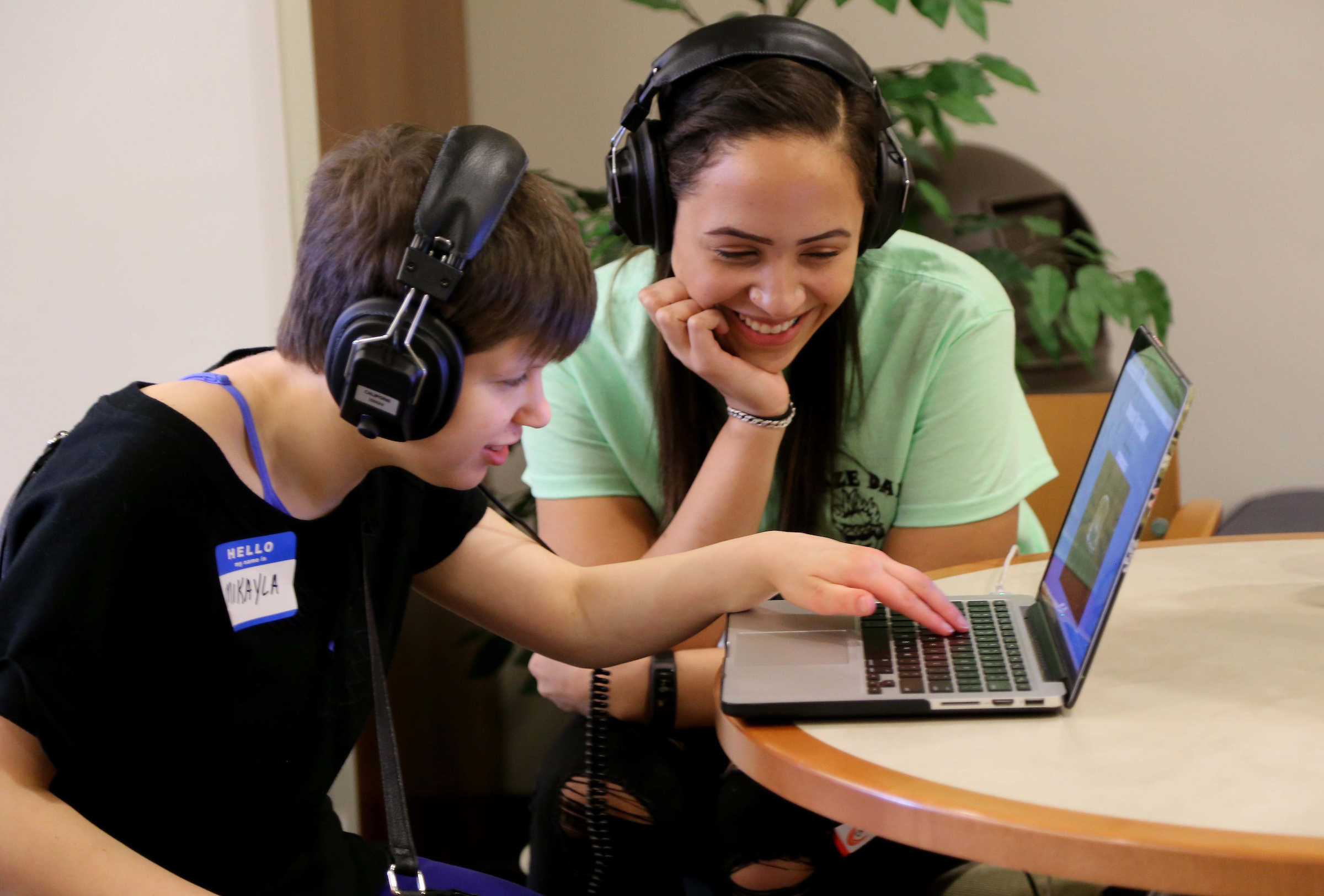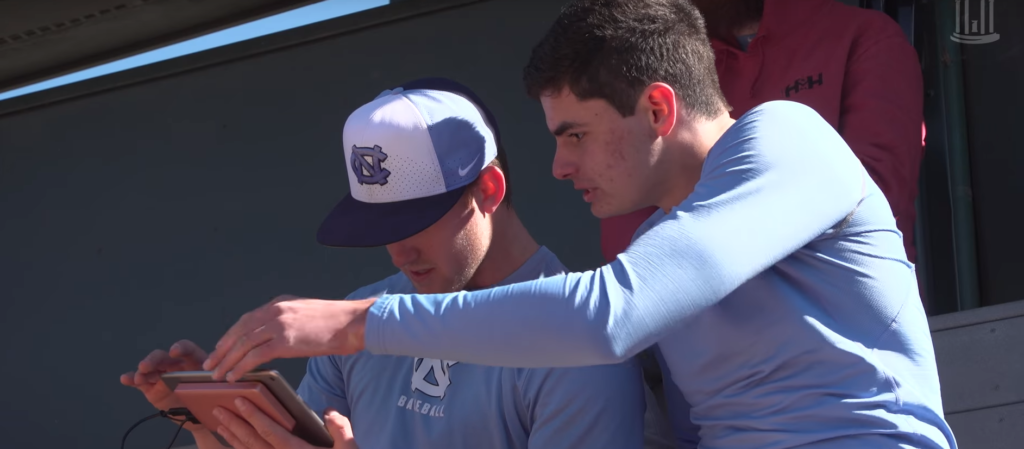
Carolina students invited K-12 students with visual impairments to campus to experience a variety of educational games and tools created just for them.
Nobody, Carolina first-year Graham Trogdon said, should be excluded from a college campus just because of a disability.
That was the message he wanted to send to the nearly 150 blind and visually impaired children who visited the University of North Carolina at Chapel Hill on May 2 for the 14th annual Maze Day.
Started in 2005 by computer science professor Gary Bishop and Carolina students in his enabling technology class, Maze Day invites K-12 students to demo a variety of educational games and tools that Bishop’s class created just for them.
“Having a day just for you, you can feel like you’re just as involved as everybody else,” said Trogdon, a computer science and linguistics major. “It’s pretty empowering.”
Students, along with their parents and teachers, came from across the state to participate in Maze Day. About half of the attendees came from the Governor Morehead School for the Blind in Raleigh.
Wali Salahuddin, a teaching assistant at the school, said Maze Day is his students’ favorite day of the year.
“As soon as the kids come back to school in September, all we hear about is Maze Day,” he said.
The other attendees came from various elementary, middle and high schools where they often are the only visually impaired students at their schools — sometimes the only ones in their district.
At Apex High School, Mikayla Gebhart is the only blind student. For her, Maze Day is an opportunity to have fun and relax by being around people who have considered her needs.
“It just feels really good not having to wonder what’s going to happen or how I’m going to access something,” said Gebhart, who will attend the Colorado Center for the Blind next year before enrolling at Wake Technical Community College. “It’s nice being with people who get it.”
Being with people who could relate to what he was going through provided great outlets for Trogdon when he came to Maze Day himself as an elementary school student.
“Having all of these programs geared toward visually impaired students filled me with awe at the time,” Trogdon said about his visits in elementary school. “It helps you connect those experiences you have that might be isolating. It helps you better understand them from other people’s perspective who have gone through them.”
Gebhart said she appreciated the opportunity to provide feedback to the Carolina students on their games, helping the students craft their demos to fit the needs of the people who will use them.
The feedback from the visually impaired students, Bishop said, provides helpful research knowledge to the faculty members and students, providing a practical learning experience for the students.
“We’re not just turning it in,” he said. “There’s a goal.”
Maze Day had it all — fun and inclusion for the visually impaired children, practical projects for Carolina students and valuable research insights.
“It’s like a triple win,” Bishop said.
Story by Will Rimer, photo by Emilie Poplett, UNC Communications




